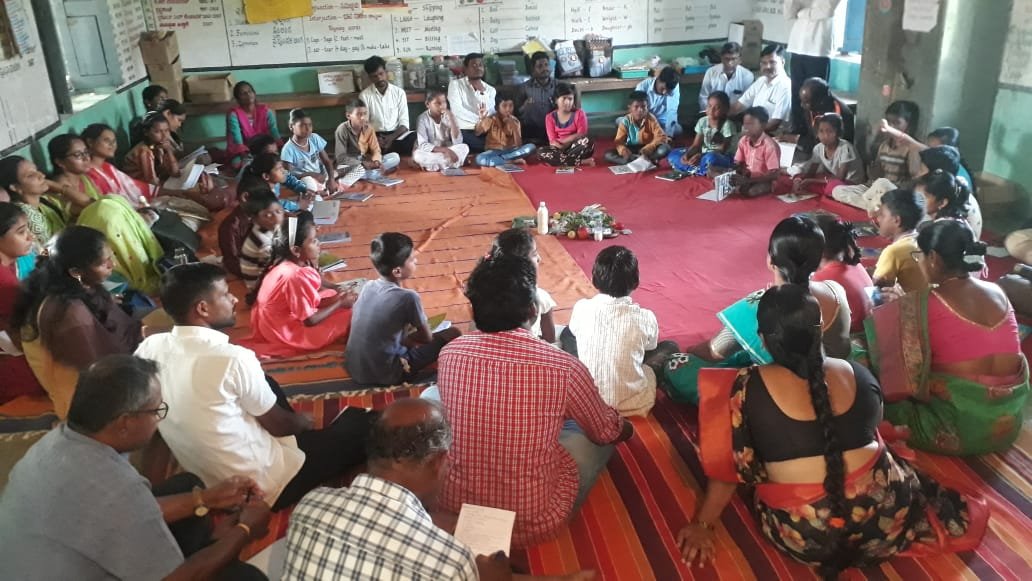OUR WORK
Kalikayatna – Quality learning programme
Kalikayatna, a Kannada word meaning ‘a learning initiative,’ stands for an overarching approach to learning. It supports and advocates any learning method and structure that works in meeting learning outcomes of children based on two premises – that it should support children’s learning styles to help them build on their innate capabilities and that it should support in achieving competency based learning outcomes.
Kalikayatna was initiated in 2005 in the Bilikere cluster of Mysore District as a collaborative Research and Evaluation project of the Sarva Shikshana Abhiyan (Karnataka) and Prajayatna.At present, it is under implementation in 2 states of Uttar Pradesh and Karnataka.
The intent of the approach is to facilitate and support children’s learning through an experiential learning process, in a manner that they are able to apply what they learn in school to the various real life situations. At a primary stage the approach focuses on ‘learning how to learn’ which in turn emphasizes building 21st century life skills – to be adaptive learners throughout their lives.


Experiential and collaborative learning
Experiential learning places a strong emphasis on direct engagement with real-world scenarios. This approach fosters a deeper understanding of the subject matter, as it goes beyond theoretical knowledge to incorporate tangible, real-life experiences. In this process, lot of importance is also given to collaborative learning. It involves children working together on projects, discussions, or problem-solving activities. This not only enhances academic understanding but also cultivates essential life skills such as communication, teamwork, and shared decision-making. This holistic approach prepares learners for a multifaceted and interconnected world, where the ability to apply knowledge is as crucial as the knowledge itself.

Teachers Collective
The empowerment of the teachers to become facilitators happens through teacher collectives which is a platform for them to come together. Here they share and learn from each other and are constantly innovating on newer ways to facilitate learning such that it is made most effective. Ways of working with children with different learning needs and levels are discussed and processes designed accordingly. New learning theories and input is given to the teachers to prepare them for the changes that are happening in and around them and realise that the learning needs of the children are also changing. In this way, they are able to update their knowledge and be creative in their facilitation.

Continuous assessment
Assessment is continuous and runs parallel to the learning process. It serves as a reflective and feedback mechanism, facilitating both teachers and students in identifying current progress and navigating forward. This assessment model doesn’t solely focus on content but places a significant emphasis on the attainment of competencies, fostering a more dynamic and personalized learning experience.

Community engagement
Regular interaction with the parents to engage them in the learning process of the child is an important component along with ensuring a conducive ecosystem within the school through the capacity building of the School Management Committees and the Gram Panchayats,
